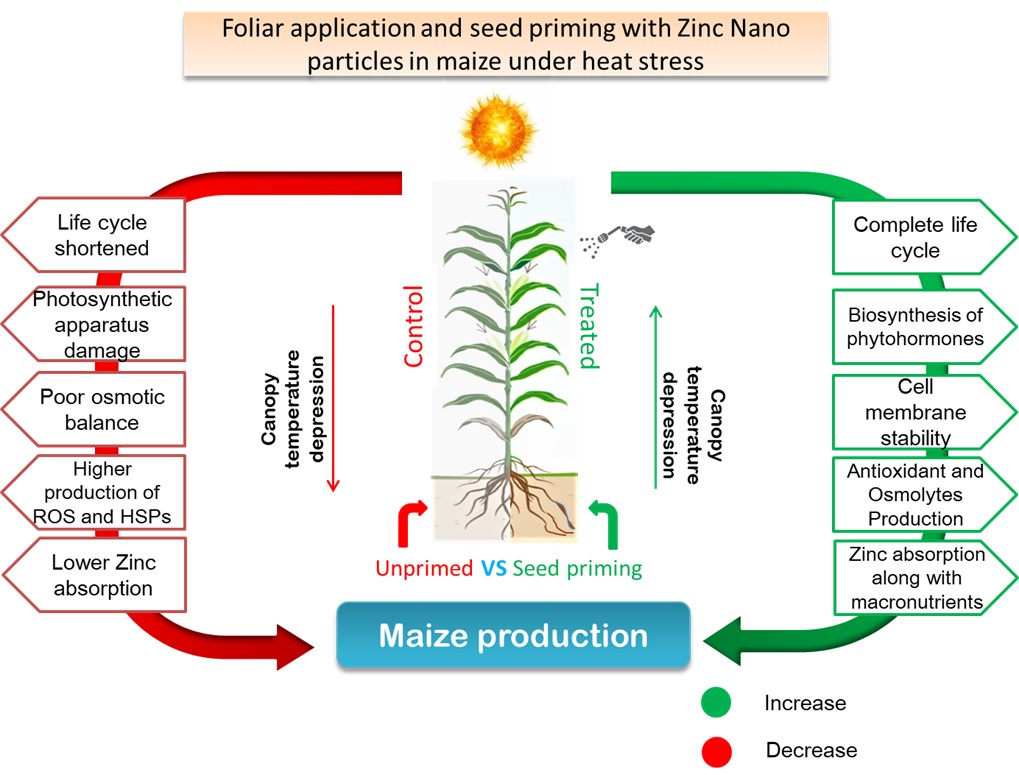- Cite article
- Download PDF
- Share article
- 33 Downloads
Heat stress is among the most devastating abiotic stresses responsible for the reduction of maize yield. Therefore, the application of zinc nanoparticles (ZnNPs) is considered one of the precise and sustainable practices to meet the nutritional and food security demands of the global population. In this context, a field trial was conducted at Agronomy Research Farm, The University of Agriculture Peshawar, Pakistan, to assess the effect of ZnNPs, applied as foliar and seed priming, on the growth, biochemical and productivity of maize. The treatments consisted of foliar application of ZnNPs (100 and 150 mg L-1) and seed priming with ZnNPs (100 and 150 mg L-1) along with control. Heat stress indeed hindered the production of maize. However, the application of ZnNPs via foliar spray and seed priming showed a positive impact as compared to the control. Foliar spray of ZnNPs at the rate of 150 mg L-1 increased leaf area, plant height, thousand-grain weight, biological yield, grain yield, grain zinc content, and total zinc uptake by 15.25, 9.03, 5.88, 7.54, 7.73, 53.03 and 34.65% as compared to control. Similarly, seed priming with 150 mg L-1 of ZnNPs improved leaf area, plant height, grains ear-1, thousand-grain weight, biological yield, grain yield, grain zinc content, and total zinc uptake by 12.21, 18.47, 6.26, 15.30, 16.71, 9.40, 26.16 and 59.77% as compared to control. In addition, ZnNPs improved chlorophyll pigments (a, b, and carotenoids) and net photosynthetic rate as well as stabilized transpiration rate, electrolyte leakage, increased canopy temperature depression (CTD), and reduced heat shock protein (HTPs). Therefore, it is concluded that applying ZnNPs at a rate of 150 mg L-1 via foliar spray and seed priming is an effective strategy to enhance maize resilience against heat stress, leading to improved growth and yield components, thereby contributing to food security and agricultural sustainability.
